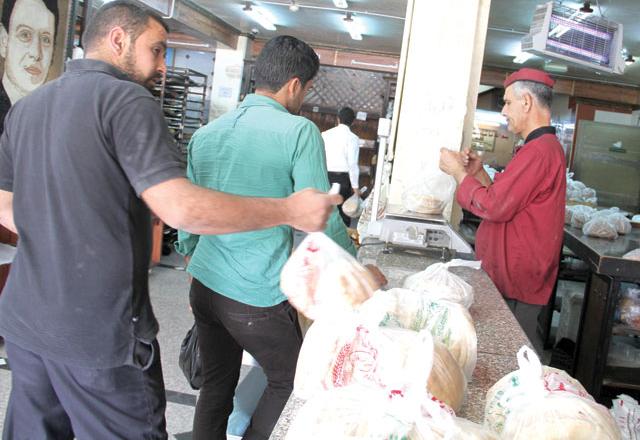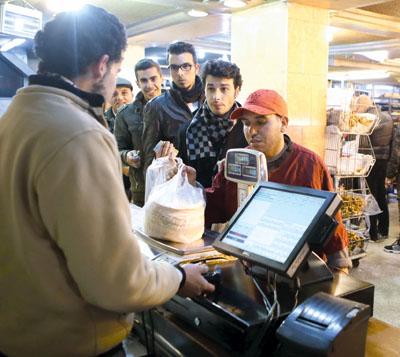You are here
Experts warn against lifting bread subsidy
By Alaa Qaraleh - May 14,2015 - Last updated at May 14,2015

AMMAN – Experts on Wednesday warned against plans to hike bread prices as the government announced it may remove the flour subsidy.
In remarks to Al Rai and The Jordan Times, they urged the government to reconsider such plans as increases in bread prices would have a negative impact on consumers, particularly low-income households.
At a press conference on Monday, Prime Minister Abdullah Ensour said the cost of a kilo of bread, after removing the subsidy, would go up from JD0.18 to JD0.38.
However, President of the Bakery Owners Association Abdul Ilah Hamawi challenged the figures provided by Ensour, insisting the price would jump to at least JD0.50 per kilo as bakeries would reflect other operational costs on consumers.
Real cost may even exceed JD0.50 if the government decides to remove the flour subsidy, the sector leader told Al Rai and The Jordan Times.
At the press conference, the premier said the government imports one tonne of flour at a cost of JD350 and sells it to bakeries at JD50, adding that the estimated cost of subsidising flour on the Treasury is around JD180 million this year.
The prime minister added that Jordanians would be compensated for the difference in prices through a smart card in case prices of the commodity were liberalised.
Economic and political analyst Zayyan Zawaneh said that hiking bread prices would result in higher living costs in Jordan as inflation would go up, indicating that the public would not accept such a move.
Zawaneh warned against the “bad timing of the talk about removing flour subsidy”.
Former industry and trade minister Samer Taweel said any decision to raise bread prices may trigger anger among the people, particularly the poor and limited-income segment.
Taweel said Jordan's experience in delivering subsidy to those who deserve it through coupons has failed, calling on decision makers to cancel such plans that do not take into account negative repercussions. Smart cards are likely to prove a failure, he added.
Bread is a basic commodity in Jordan and should not be viewed as an item that can reduce financial pressure on the Treasury, the expert said.
Hamawi said he was against the use of smart cards due to technical complications, urging decision makers to lift the subsidy through a gradual approach over several years so consumers would not be directly affected.
Related Articles
Islamists and labour unions on Thursday warned the government against hiking bread prices.
Most consumers in Jordan throw away nearly a quarter of the bread they buy, according to estimates, a figure seen by officials as alarming enough to call for reviewing the subsidy system.
The Consumer Protection Society (CPS) on Saturday called for studying all aspects of any decision related to lifting the flour subsidy, the Jordan News Agency, Petra, reported.

















